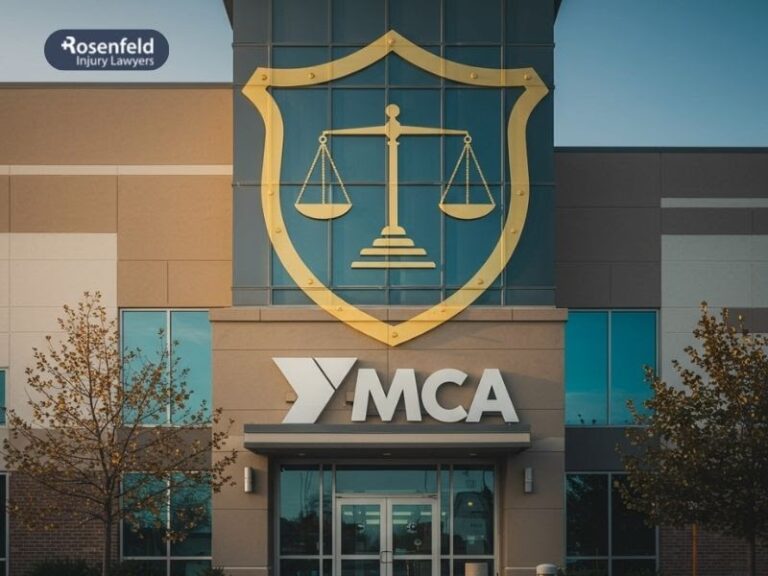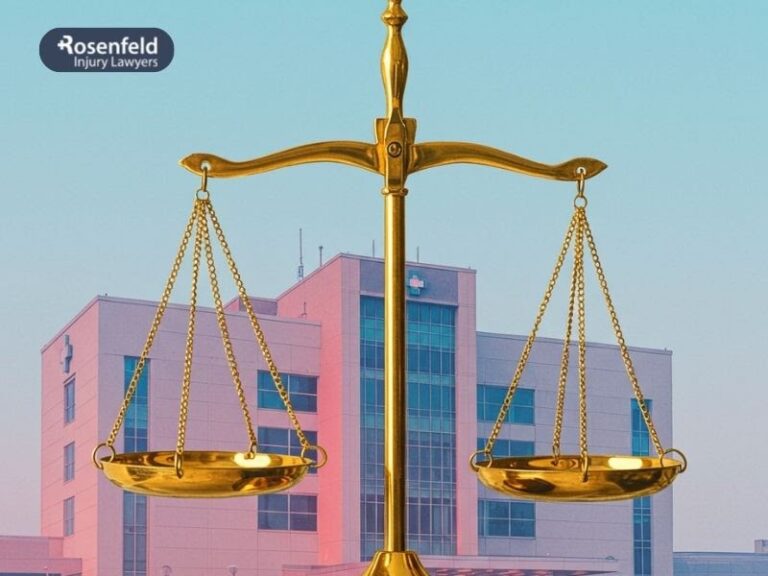Free Case Evaluation: 866-757-6452

Helping Survivors Take Legal Action and Hold Institutions Accountable
A Michigan sexual abuse lawsuit can be a powerful step toward justice for those who were sexually abused in schools, churches, juvenile detention centers, or other institutional settings. At the Injury Lawyer Team, we help survivors file civil sex abuse lawsuits against abusers and the institutions that failed to protect victims, whether the abuse happened recently or decades ago.
Our firm represents clients across the state, including those with sexual abuse claims against the University of Michigan, Michigan State University, Catholic dioceses, and Michigan juvenile detention centers. These cases often involve criminal sexual conduct, negligent hiring, sexual harassment, and other failures that left victims vulnerable.
Thanks to recent changes in Michigan law, many survivors now have a renewed opportunity to pursue civil claims , even if they were previously barred by the statute of limitations.
Whether the abuse was reported or never investigated, our sexual abuse lawyers can help you understand your rights, file a civil suit, and seek justice and compensation for the pain, trauma, and other damages you’ve endured. Book a free consultation today!
Recent Updates on Sex Abuse Lawsuits in Michigan
May 20, 2025 – Michigan Senate Passes ‘Justice for Survivors’ Bills Expanding Legal Rights for Sexual Abuse Victims
The Michigan Senate passed the “Justice for Survivors” bill package, aiming to expand legal protections for sexual abuse survivors and eliminate institutional barriers to justice.
The legislation, led by Senators Kevin Hertel, Mallory McMorrow, and Sam Singh, includes Senate Bills 257–261 and addresses Michigan’s restrictive statute of limitations and broad governmental immunity.
Key provisions include:
- Extending the civil statute of limitations for criminal sexual conduct to the later of 10 years from when the claim arises, 7 years from discovery, or the survivor’s 42nd birthday
- Creating a one-year revival window for previously time-barred civil sexual assault claim
- Allowing civil suits even if there was a prior criminal conviction
- Letting sexual abuse survivors seek compensation for up to $1.5 million per incident
- Eliminating immunity for government entities and schools that failed to act on known abuse
The reform comes in response to decades of high-profile abuse scandals in Michigan, including those involving Larry Nassar (USA Gymnastics), multiple athletic teams, institutions like the Catholic Church and the Boy Scouts of America, as well as Michigan priests accused of sexual abuse.
Lawmakers also cited rulings by the Michigan Supreme Court that upheld sovereign immunity as further evidence of the need for reform. The bills will now move to the Michigan House for further consideration.
May 6, 2025 – Multiple Lawsuits Allege Widespread Abuse at Two Michigan Juvenile Facilities
A Michigan man has filed two federal lawsuits alleging he endured extreme physical and sexual abuse while housed at Holy Cross Children’s Services and Wolverine Human Services (WHS), two juvenile detention facilities in Saginaw County. The plaintiff says the abuse occurred between 2015 and 2019 when he was between 10 and 13 years old.
At Holy Cross, the plaintiff claims a male staff member sexually abused and tortured him repeatedly, including being forced to self-harm, drink his own blood, and wear a dress. At WHS in Buena Vista Township, he alleges he was sexually assaulted more than 15 times by four male staffers, forced to consume human waste, and threatened with violence.
The Michigan youth detention center sexual abuse lawsuits accuse both facilities of failing to protect children, discouraging disclosure, and maintaining an institutional culture of abuse. They also cite two previous convictions of WHS employees for criminal sexual conduct with minors.
Another lawsuit filed on behalf of 14 plaintiffs accuses WHS staff of similar abuse at the same Buena Vista facility. The Michigan Department of Health and Human Services (MDHHS) had previously closed WHS’s Buena Vista center in 2021 after uncovering 10 major violations, including sexual misconduct and physical abuse.
Despite multiple sexual abuse victims coming forward, none of the credibly accused in these suits have been criminally charged. WHS leadership maintains that all abuse allegations were properly investigated, but victims argue they were repeatedly silenced or ignored.
April 29, 2025 – Grand Rapids Man Sues Michigan Juvenile Facility Over Alleged Physical and Sexual Abuse
Jermichael Brown Jr., a Grand Rapids man, has filed a federal lawsuit against the operators of the Muskegon River Youth Home—now called the Osceola Youth Center—alleging repeated physical and sexual abuse while he was housed there in 2019 at age 15.
According to the complaint filed in the U.S. District Court for the Western District of Michigan, Brown was sexually assaulted by staff who allegedly slammed his head into the floor and into a metal bed frame.
The lawsuit also accuses a female staff member of engaging in inappropriate conduct, including exposing herself, touching him, and coercing him into sexually explicit acts. His Grand Rapids sexual abuse attorney stated that Brown was physically beaten and threatened with retaliation if he disclosed the abuse.
The Osceola Youth Center is operated by Youth Opportunity Center, an Indiana-based company. The Mecosta-Osceola Intermediate School District, which provided education at the facility, is also named in the suit for allegedly violating state and federal protections against sex-based discrimination.
December 16, 2024 – Michigan Attorney General Releases Lansing Catholic Diocese Sexual Abuse Report Detailing Decades of Allegations
Michigan Attorney General Dana Nessel has released a detailed report documenting allegations of sexual abuse and misconduct within the Diocese of Lansing. The document compiles victim interviews, police investigations, tipline reports, and internal diocesan records, covering incidents dating back to 1950.
The report names 56 individuals, including 48 priests, three religious brothers, one religious brother in formation, and four deacons. Of these, 42 were ordained or incardinated by the Diocese of Lansing. While many of the allegations are too old for criminal prosecution due to the Michigan statute of limitations, some cases have resulted in charges and convictions.
Nessel emphasized the importance of the report in validating survivors’ experiences and holding institutions accountable. “Ensuring each victim is heard, regardless of how long ago the sexual abuse occurred, is essential,” she said.
The release is part of a broader investigation into Michigan clergy abuse lawsuits. Since 2018, the Attorney General’s office has seized 220 boxes of paper records and reviewed 3.5 million digital documents from church institutions. The effort has led to criminal charges in 11 cases, resulting in convictions involving 38 survivors.
The Diocese of Lansing cooperated with the investigation and provided internal abuse reports. The Michigan Attorney General’s office has also published similar reports regarding the dioceses of Marquette, Gaylord, Grand Rapids, and Kalamazoo, with more expected.
This report reaffirms the state’s commitment to transparency, victim support, and accountability for institutional failures tied to decades of clergy abuse.

September 24, 2024 – Physician Accused of Filming Patients Faces Civil Action and Criminal Charges in Michigan
Two class action lawsuits have been filed in Michigan against DMC Sinai Grace and Henry Ford Macomb, accusing both medical institutions of negligence in granting privileges to Dr. Omair Aejaz, a Rochester Hills-based physician now charged with multiple sex crimes.
Authorities say Dr. Aejaz secretly recorded hundreds — possibly thousands — of patients, including minors, while they were undressing, using restrooms, or under anesthesia.
The doctor sexual abuse lawsuits, filed in Macomb and Wayne counties, represent all patients treated by Aejaz at either hospital from 2018 to 2024, regardless of whether they were aware they had been filmed. Investigators have recovered 16 storage devices, six computers, and four phones, including one hard drive containing over 13,000 videos.
Dr. Aejaz, 40, was arrested in May and is being held on a $2 million bond. So far, he faces 10 felony counts. Officials say the number of sexual abuse survivors could reach into the hundreds, including children as young as 2 years old. A dedicated email set up by the Oakland County Sheriff’s Office has already received over 120 tips from potential victims.
Hospital sexual abuse attorneys argue the facilities failed to ensure patient safety, calling the institutions’ responses attempts to dodge responsibility. While both DMC and Henry Ford Health System deny Dr. Aejaz was their employee at the time of the incidents, critics argue that’s a legal tactic to avoid civil liability.
Oakland County Sheriff Michael Bouchard confirmed more charges are likely as the investigation continues. He emphasized prosecutors are taking their time to ensure the case is airtight, noting that Aejaz’s next court date has been postponed to allow for more evidence review.
Sexual abuse survivors are being urged to come forward quickly, as Michigan legislature imposes a statute of limitations on civil sexual abuse claims.
September 20, 2024 – Wayne County Juvenile Facility Sued Over Alleged Sexual Abuse of Minor in Custody
A 22-year-old man has filed a lawsuit against Wayne County, alleging he was repeatedly raped by two staff members at the Wayne County Juvenile Detention Facility in Detroit between 2018 and 2020, when he was a minor.
The Wayne County Detention Center sexual assault lawsuit claims the two men, referred to as “Mr. White” and “Mr. Johnson,” sexually abused him while he was in custody. They no longer work at the facility.
The complaint describes how the abuse began shortly after the plaintiff arrived at the facility, with staff allegedly using threats, manipulation, and isolation to commit the assaults. The man also claims county officials ignored warning signs, failed to perform background checks, and allowed known problem employees to continue working with youth.
This lawsuit comes amid a series of misconduct allegations at the facility, including multiple reports of abuse involving other youth. In response to earlier incidents, the state had declared a public health emergency in 2023 and intervened at the facility.
The lawsuit argues that the county’s inaction and policy failures created a dangerous and abusive environment for residents.
How to File a Civil Sexual Abuse Lawsuit in Michigan
Sexual abuse survivors in Michigan have the right to take legal action through the civil court system, regardless of how long ago the abuse occurred or whether any criminal charges were ever filed. A civil lawsuit is not about proving guilt beyond a reasonable doubt but about holding individuals or institutions accountable and recovering compensation for the harm caused.
To start a civil lawsuit, the survivor (or their attorney) must file a complaint in court. This outlines what happened, names the person or institution responsible, and explains how the abuse caused harm.
In Michigan, survivors can also sue third parties—like churches, schools, detention centers, or healthcare providers—if they failed to prevent the abuse due to negligence in hiring, supervision, or oversight.
Survivors can file a civil lawsuit even if the abuser was never criminally charged or convicted. The case can move forward based on the survivor’s sworn statement, supported by any available evidence, such as therapy records, emails, witness statements, or personal documentation.
What Constitutes Sexual Abuse and Assault Under Michigan Law?
In Michigan, sexual abuse and sexual assault are defined under both criminal law and civil law, and understanding the distinction is crucial for anyone considering legal action.
Michigan’s criminal sexual conduct (CSC) statutes are laid out in Michigan Penal Code §§ 750.520b–750.520e, which cover first- through fourth-degree CSC.
These laws define offenses ranging from penetration with force or coercion to unwanted sexual touching without consent. Charges are based on the nature of the contact, age of the victim, use of force, position of authority, and other aggravating factors.
Civil lawsuits are governed by Michigan’s general tort law principles (e.g., negligence, battery, intentional infliction of emotional distress) and are often filed under MCL § 600.5805, which governs the statute of limitations for personal injury and sexual assault claims.
Michigan statute of limitations has recently been under legislative review to expand the window for filing claims involving child sexual abuse, especially those that occurred decades ago.
In a criminal case, prosecutors must prove guilt beyond a reasonable doubt. In contrast, civil cases only require a showing that the abuse “more likely than not” occurred. This standard, known as the preponderance of the evidence, makes it more accessible for survivors to hold abusers or negligent institutions accountable.
Michigan law allows survivors to file under pseudonyms like “Jane Doe” or “John Doe” to protect their privacy. Courts may also issue protective orders to seal sensitive personal information under Michigan Court Rule 8.119(I) and other judicial discretion.
How Long Do I Have to File a Sexual Abuse Lawsuit in Michigan?
If you’re a survivor of sexual abuse in Michigan, you may still have time to file a lawsuit—even if the abuse happened years or decades ago. The law has recently changed, and more reforms are underway that could give you a new opportunity to pursue justice.
Under MCL 600.5851b, survivors of child sexual abuse have until age 28, or three years after discovering that the abuse caused psychological injury—whichever is later.
Additionally, if the abuser is convicted of first-degree criminal sexual conduct and held a position of authority over the survivor (such as a clergy member, coach, or teacher), the survivor may bring a civil lawsuit within 90 days of that conviction—even if other deadlines have passed.
Michigan law recognizes that trauma can prevent survivors from immediately understanding the impact of what happened to them. If the survivor discovers the harm later in life, they can still file within three years of that realization, even if they are older than 28. This is especially relevant in clergy abuse, institutional abuse, or cases involving PTSD or dissociation.
Under MCL 600.5851, if a survivor was under 18 or legally incapacitated (e.g., due to mental illness) when the abuse occurred, the statute of limitations is paused until the disability ends. After that, the survivor typically has one additional year to bring a claim.
Under MCL 600.5855, when an institution or abuser actively conceals the abuse or their role in enabling it, Michigan law allows survivors to file within two years of discovering the truth. This applies to situations where schools, churches, or employers covered up abuse or failed to disclose internal investigations.
New legislation passed by the Michigan Senate would significantly expand survivors’ rights. Senate Bills 257–261would eliminate civil time limits in future claims with criminal convictions, open a one-year revival window for previously expired claims, and repeal immunity for public institutions.
Two additional proposals—Senate Bill 1187 and 1189—would create a two-year lookback window and extend rights to sue schools, churches, and other institutions that played a role in allowing abuse to happen.
Every survivor’s story is different. If you’re unsure whether you still have time to file a lawsuit—or if you’re affected by the proposed law change—we’re here to walk you through it. At the Injury Lawyer Team, we’re committed to helping you understand your rights and explore every legal option available under Michigan law.
Who Can Be Held Liable in a Civil Suit for Sexual Abuse in Michigan?
In Michigan, civil sex abuse lawsuits can hold not only individual perpetrators accountable, but also the institutions and entities that enabled, ignored, or concealed abuse. Survivors may have legal grounds to sue a wide range of parties depending on where the abuse occurred and who had a duty to prevent it.
Individual Perpetrators
The person who committed the abuse can always be named as a defendant. This includes teachers, clergy, staff members, therapists, or anyone in a position of authority or care. Even if the perpetrator has died, survivors may still be able to bring claims against the institutions that enabled the abuse.
Institutions and Organizations
If the abuse happened at a school, church, correctional facility, sports program, treatment center, or other institutional setting, the organization itself may be liable under theories such as negligent hiring, failure to supervise, or failure to report. Michigan law allows civil sexual abuse claims against these entities when they failed to act on warning signs or knowingly placed children at risk.
Juvenile Detention Facilities
Michigan juvenile detention centers have faced repeated allegations of widespread sexual abuse, physical violence, and dangerous conditions. Under vicarious liability, the state or private operators of these facilities can be sued if the perpetrator was acting within the scope of employment, or if the employer knew—or should have known—of the risk and failed to act.
Example facilities that can be pursued in youth detention center sexual abuse lawsuits include:
- Shawono Center (Grayling): Reports of sexual assault, staff misconduct, and lack of supervision.
- Maxey Training School (Whitmore Lake): Closed in 2015, but has a documented history of abuse. A 2024 DOJ report found systemic civil rights violations.
In many of these cases, survivors file suit against the Michigan Department of Health and Human Services (MDHHS) or contracted private companies for maintaining dangerous conditions or failing to intervene.
The State of Michigan
Survivors can sue the State of Michigan directly if abuse occurred in a government-run facility or if state officials failed in their legal duty to act. These claims often cite gross negligence, civil rights violations, or failure to protect.
Under MCL 600.6431, a written notice of intent must be filed within six months of the claim, unless tolled by disability or concealment. Survivors may also invoke the fraudulent concealment exception under MCL 600.5855 if the abuse or institutional failures were covered up.
Pending legislation seeks to eliminate governmental immunity in cases where institutions knew of abuse but failed to act, a critical step in holding the state accountable for systemic harm.
Residential Treatment Centers
Michigan’s residential treatment centers, often used to house vulnerable teens with behavioral or mental health needs, have seen rising abuse allegations. These facilities are typically state-licensed and receive government funding, but many are privately operated. Civil sexual abuse claims often allege:
- Negligent hiring or supervision of staff
- Chronic understaffing or unqualified caregivers
- Failure to investigate or report known abuse
- Institutional culture that allowed abuse to continue unchecked
Examples include:
- Detroit Behavioral Institute (Detroit)
- Harbor Oaks Hospital (New Baltimore)
- Forest View Hospital (Grand Rapids)
- Cedar Creek Hospital (St. Johns)
- Starr Commonwealth (Albion)
- Maurice Spear Campus (Adrian)
- StoneCrest Center (Detroit)
- Bay Pines Center (Escanaba)
In many of these cases, survivors sue both the individual staff member and the facility or parent organization for negligent operation or failure to protect.
Schools, Churches, and Universities
Michigan educational facilities, such as school districts and Michigan State University, have also faced numerous abuse lawsuits. These institutions may be held liable under:
- Negligent retention or supervision
- Failure to report under Michigan’s mandatory reporting laws
- Concealment of past abuse by staff or clergy
Employers and Property Owners
If the abuser was an employee, the employer may be liable under vicarious liability if the abuse occurred during the course of employment. Property owners, such as healthcare providers, group homes, or religious organizations, can also be sued if they fail to provide a safe environment.
What Damages Can I Recover in a Sex Abuse Claim?
Survivors of sexual abuse in Michigan have the right to pursue civil compensation for the deep and lasting harm caused by the abuse. These damages are meant to help address the personal, emotional, and financial toll, not just punish the wrongdoer, but begin restoring what was lost.
Economic damages are the tangible, out-of-pocket losses tied to the abuse and its aftermath. Survivors can recover:
- Medical expenses, including past and future costs for physical injuries
- Mental health care, such as therapy, psychiatric treatment, and trauma recovery services
- Lost wages, if the abuse affected your ability to work
- Loss of earning capacity, for long-term impacts on your career or education
- Out-of-pocket expenses related to relocation, safety measures, or disability accommodations
Many of the most serious effects of abuse are emotional and psychological. Michigan law allows survivors to seek non-economic damages, such as:
- Pain and suffering
- Emotional distress
- Loss of enjoyment of life
- Anxiety, depression, PTSD, or other trauma-related conditions
- Shame, humiliation, or damage to personal relationships
These damages are often supported by expert testimony, therapy records, or personal accounts that show how the abuse impacted day-to-day life and mental well-being.
In rare cases, courts may award punitive damages — not to compensate the victim, but to punish the defendant for particularly reckless, malicious, or intentional conduct. These are more likely in cases where institutions actively concealed abuse or failed to act on known risks.
What Is the Average Compensation Amount in Michigan Sexual Assault Lawsuits?
While every case is different, compensation amounts can vary widely depending on the circumstances. Case results in Michigan range from as low as $105,000 to as high as $15.4 million. The average settlement or verdict amount is approximately $2.97 million, while the median award is around $1.25 million.
Financial settlements reflect the severity of harm involved, the extent of institutional negligence, and whether punitive damages or multiple plaintiffs were part of the case.
Notable Michigan Sexual Assault Lawsuit Settlements & Verdicts
Dr. Robert Anderson and the University of Michigan
The University of Michigan paid a $490 million settlement in 2022 in hundreds of sexual abuse claims after failing to protect students abused by former sports doctor Robert Anderson. Similar claims have been filed against Catholic dioceses across the state, citing the abuse occurred decades ago and involved institutional cover-ups and failure to protect children.
Prison Abuse Verdict
Ten women formerly incarcerated at Michigan’s Scott Correctional Facility were awarded a combined $29.8 million in a landmark prison sexual abuse lawsuit over repeated sexual assault, harassment, and privacy violations by prison staff. The abuse allegedly occurred in the early 1990s, with plaintiffs ranging in age from 17 to 35 at the time.
They claimed the Michigan Department of Corrections ignored a known sexually hostile environment and retaliated against those who tried to speak out. A jury awarded $15.4 million in damages plus interest and attorney fees, with individual verdicts ranging from $335,000 to $3.6 million.
Public School Sexual Abuse Settlement
A former high-school student reached a $2.15 million settlement with Marshall Public Schools after alleging she was repeatedly groomed and sexually abused by a male teacher starting at age 15. The plaintiff claimed the school district failed to act on early warnings, downplayed evidence, and fostered a hostile environment.
The abuse led to severe trauma, including PTSD, hospitalizations, and a suicide attempt. The teacher ultimately pleaded no contest. The school sexual abuse lawsuit argued that officials knew or should have known about the abuse and failed to intervene effectively.
Arbitration Award in Michigan Daycare Sexual Abuse Case
Two four-year-old girls and their families reached a $1 million arbitration settlement with a Michigan daycare center after alleging they were sexually assaulted by an employee. The daycare sexual abuse lawsuit claimed the facility was negligent in hiring, supervision, and retention, allowing repeated abuse to occur.
The daycare denied that any assaults happened or that it was liable, arguing the employee acted outside the scope of his job. The case was resolved through arbitration, with both plaintiffs receiving compensation for the harm and need for ongoing medical and psychological treatment.
How Our Legal Team Can Help
If you or a loved one experienced sexual abuse in Michigan, our legal team is here to guide you through the process with experience, discretion, and compassion. We handle every aspect of your case—from gathering evidence and filing a civil lawsuit to negotiating settlements or going to trial if needed.
Our attorneys understand Michigan’s evolving laws on sex abuse lawsuits, including recent updates to statutes of limitations and immunity protections. We also know how to hold institutions like schools, churches, detention centers, and treatment facilities accountable when they fail to protect vulnerable individuals.
Whether you’re ready to take legal action or just need answers, we’re here to listen, explain your options, and help you move forward with confidence.
Michigan Sexual Abuse Lawsuit FAQs
What is the difference between sexual harassment and sexual abuse?
Sexual harassment typically involves unwelcome verbal, visual, or physical conduct of a sexual nature that creates a hostile environment, common in workplaces or schools. Sexual abuse, on the other hand, refers to any form of non-consensual sexual contact or behavior, often involving force, coercion, or exploitation. While harassment may lead to civil claims under employment or education laws, sexual abuse can give rise to both civil lawsuits and criminal charges.
What is the potential value of a Michigan sex abuse case?
Case values vary but may include compensation for mental health distress, therapy, lost wages, and medical expenses. Some survivors have received settlements or verdicts in the hundreds of thousands or even millions, depending on the harm and the institution’s role.
Do I have to go to court for my Michigan sexual abuse claim?
Not necessarily—many sexual abuse cases settle before ever reaching trial. Your attorney may be able to negotiate a fair settlement outside of court. But if the defendant refuses to take responsibility or offer reasonable compensation, going to court might be necessary to pursue justice and full damages.
Do I have to testify publicly or use my real name in court?
No. Michigan courts allow survivors to file using a pseudonym like “Jane Doe” and can issue protective orders to keep your identity and details confidential.
How much does it cost to hire your law firm for a sex abuse case?
The sexual abuse attorneys at Injury Lawyer Team work on a contingency fee, meaning you pay nothing upfront and only owe legal fees if your case wins or settles.
Speak With a Michigan Sexual Abuse Lawyer Today

If you or someone you care about has experienced sexual abuse in Michigan—whether recently or years ago—you don’t have to face the legal system alone. At the Injury Lawyer Team, we’re here to offer confidential, compassionate guidance and help you understand your legal rights.
Whether you’re ready to file a claim or just want to talk through your options, our Michigan sexual abuse attorneys are here to listen and support you. Call us today at (866) 757-6452 or send a confidential message through our online contact form.
We serve sexual abuse survivors throughout Michigan, including:





![Illinois Catholic Diocese Priest Sexual Abuse List [387 Perps] illinois-catholic-diocese-priest-sexual-abuse-list](https://injurylawyerteam.com/wp-content/uploads/2025/05/illinois-catholic-diocese-priest-sexual-abuse-list-150x150.png)





